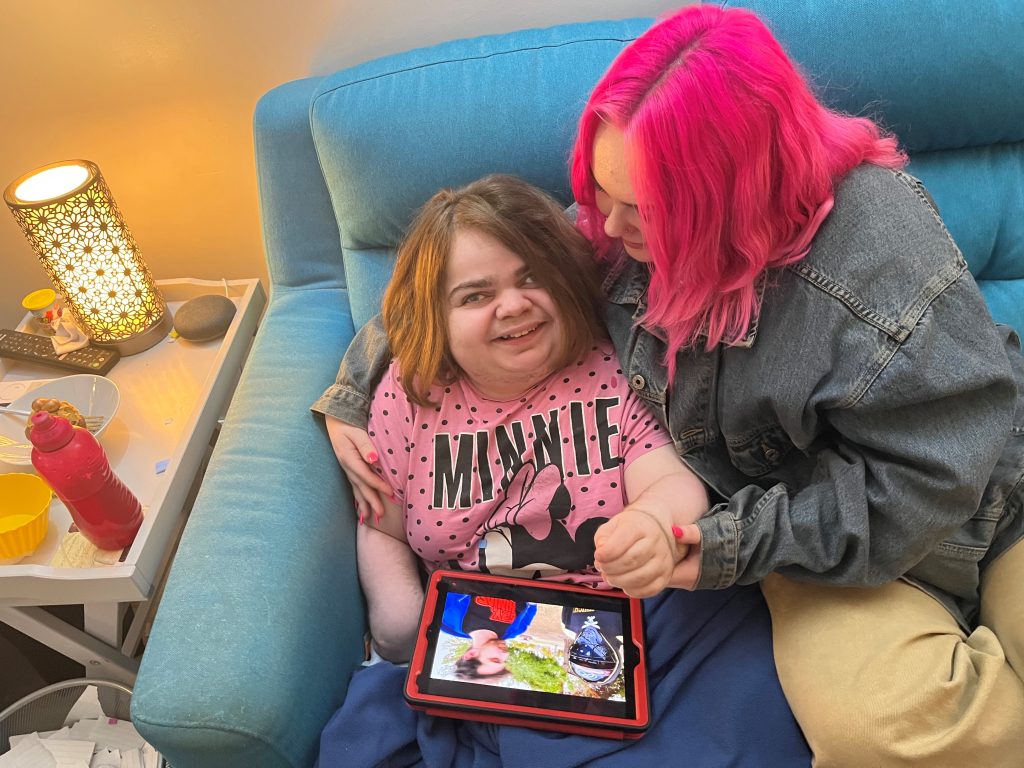
It is difficult to talk about the realities of being a sibling without feeling I am doing my parents an injustice for the incredible job they did raising us.
Ultimately, however, no amount of love can ease the pain of experiencing just how cruel the world has the potential to be that young. I was one (almost two) when Sophie was born and two when she was diagnosed with Hurlers syndrome, a rare genetic disorder that in severe cases (like my sister’s) leads to significant health issues, physical and learning disabilities. If left untreated Sophie’s life expectancy would have been short, 5- 10 years, an unfair prognosis for someone who radiates so much joy. There is no cure but there are treatments. On 10th September 2003 the kindness of a stranger gave my sister a second chance at life and she underwent a bone marrow transplant, six days after my third birthday. Just four months before this my parents received the news that I was not a match and unable to donate bone marrow to my sister. There was a one in four chance of me being a match so this was not completely unsurprising however it is one in one hundred thousand she would be born with the disease; you can’t be blamed for hoping 25% when you are already 0.001%. Sophie spent a long time in hospital after her transplant. At three years old I waited at home whilst she battled life-threatening complications and cardiac and respiratory arrests.
That waiting was something I would become familiar with, everything on pause and nothing I could do to make anything better. Sophie turns twenty this year and is doing amazingly but that isn’t to say everything after the transplant went smoothly. In between countless surgeries and hospital appointments we grappled with what her being disabled would mean and just what the future would look like. I hold a lot of anger. I get the impression that this is something I should feel guilty about, but I don’t. The way I had to grow up, the experiences I had are not fair and I am deeply traumatised as a result.
Though being a sibling has made me who I am, and I love my sister more than anything, no one should ever have to feel like I did and especially not a child. The disconnect I had to home from everything and everyone around me to cope impacts me to this day. It is hard to feel important enough for someone to care about just who I am. Constantly being seen as an extension of my sister, every adult’s first question to me was “how is Sophie” and despite the palpable pity seeping through every “that must be so difficult for your parents” I knew the illusion of care was never truly for me.
It would be a lot easier to focus on the positives of being a sibling, the unique perspective it has given me, how Sophie’s resilience inspires me every day and my enjoyment of life empowered by the knowledge of just how fleeting it can be. But without the acknowledgement of the negatives, this reflection would be insincere. I was always “such a good sister” but never a person. In every moment I spend looking for external validation, in my academics, at work, from everyone I meet, there is a little girl who just wants to be enough as she is. Value the child you know with a disabled sibling a little more, separate them from your pity and want to know about who they are. Ensure they know the world isn’t as cruel as it has been to them, and they should never have to go through this alone. Give them a space where they don’t have to be strong – I needed it.
My sister is everything I am and could ever hope to be. My love for her is the strongest thing I have ever felt and in a society that treats disabled people the way ours does this comes with so much anger and pain. The pandemic has highlighted how little people care about disabled people, months of shielding with no support, the do not resuscitate orders imposed on those with learning disabilities, the issue goes far beyond my experiences but the disregard for her life over the past two years has been incredibly hard. The familiar helplessness crept back in, my life on pause while we do everything, we can protect her. The twang of pain hearing people exclaim “oh but only the vulnerable will die” was the same feeling I used to get hearing the r-slur thrown around at school.
The issue isn’t new, and my feelings being hurt are not why it’s wrong, disabled people deserve respect and their lives are important – being a sibling just makes it all feel a little more personal.
Sophie teaches me every day to care more and live passionately. I give everything I have to everything I do because the opportunity I have by just being alive is too great to limit myself to mediocrity. I am immensely grateful for the fact I have been able to watch my sister grow into the wonderful person she is, not everyone is so lucky.
To all other siblings, I hope you know just how lucky everyone around you is to know you. Be gentle with yourself and know you are important for who you are not what you do.